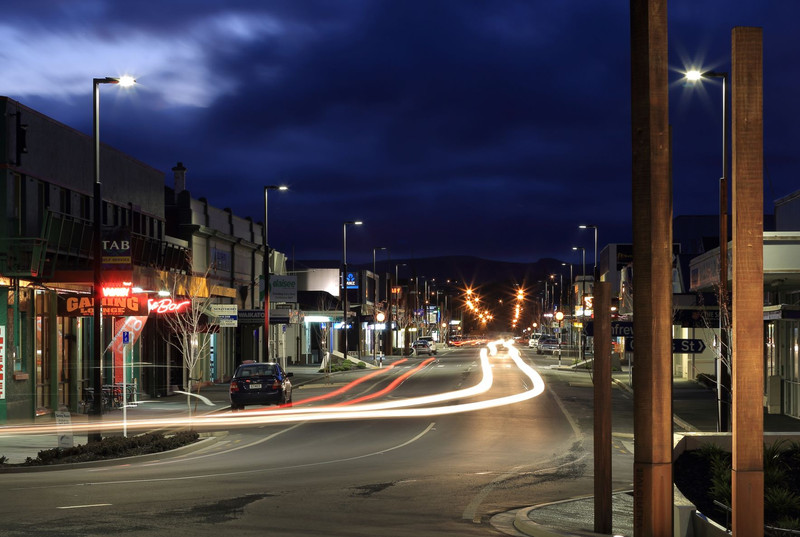The Story of Unifone
Chatting with Travis Baird and Glenn Hutton together in their functional but comfortable Balclutha office you can see why their business, Unifone, is so successful. They clearly get along well – there’s a mutual respect and recognition of complementary skills that has worked well for them since their separate WISP businesses merged in 2016.
Way back, while a student living at his parents’ home near Waihola, Travis saw his schoolmates using broadband while he suffered shonky dial-up Internet. With a bit of knowledge about wireless, and some help from his dad who was an electrician, he successfully beamed a signal from Milton to the family farm. The neighbours soon joined in.
Then when Travis went on to Otago University, he met a group of fellow students who were also into wireless. Soon Unifone was selling broadband connections to numerous student flats. Travis built the business on his knowledge of the market, and his understanding that struggling students can’t sign year-long contracts – a reality that eluded the mainstream telcos.
Over time, Unifone came to own the Dunedin student telecommunications market and a lot more besides.
Meanwhile, Glenn was leaving his role as a plant technician in a major corporate construction company in South Otago and looking for something to do. With a business partner, he started a new WISP; Rivernet. Rivernet announced its presence by setting up free WiFi in the main street of Balclutha and then went on to build wireless sites around south Otago.
So, by the time the two businesses merged, both had sizeable footprints – Unifone in the Dunedin-Milton area, and Rivernet centred further south in Balclutha. The merged business took the Unifone name and moved ahead as a single entity, with Travis still based in Dunedin and Glenn in Balclutha.
Glenn recalls that when the two were talking about merging he expressed doubt about the potential for any more growth in South Otago. Travis disagreed and said he could easily increase it, to which Glenn responded that Travis would have to be a genius to achieve that. In a very short time he did so, more than doubling the customer count.
By 2017 when the government’s Rural Broadband Initiative (RBI2) came into the frame, the merged Unifone was already on a strong growth track. Its successful bid will double the number of sites but increase the customer count by a smaller percentage – the RBI2 areas, by definition, are sparsely populated and hard to reach. Glenn says the big benefit of RBI2 was that it drove a more disciplined approach to the way the business is run. “We had to get more structured so as to reach the point of sign-off – we had to involve the lawyer and accountant, standardise our pricing, and get really serious about formalising safe work practices,” he says. “The process of getting to the point of government sign-off was a lot of work but it has made our whole business more sophisticated and robust.”
Unifone’s RBI2 rollout is well underway. Glenn is especially proud of one of the first sites, Tussock Ridge in the Waipori pine forest southwest of Dunedin. Residents there had no connectivity at all until June of 2018 – not even mail delivery. Now they have full Internet access, with 50% of the residents signing up in the first three weeks after the site went live.
Today, Unifone is growing steadily with around 60 wireless sites and 1800 customers as well as “white label” retail service providers. Most of the sites are owned outright by Unifone, although a handful are community or privately-owned sites. Unifone prefers to own the sites outright to keep the operation simple.
The northern boundary of the network is the Pigroot – the legendary State Highway 85 between Palmerston and Alexandra. In the south, it ends at Kaka Point in the Catlins. Westward, there’s a strip right into Central Otago including Middlemarch and the Maniototo region. Wireless hotspots abound on the Unifone network – in main streets, hotels, halls of residence and student flats.
Unifone customers are a diverse bunch. Dunedin is still a large part of the business and the company has never forgotten its student roots. “We compete on service,” Travis says. “The big anonymous telcos mail a broadband router out to the customer and never meet face-to-face. We make a house call and make sure they are set up – that’s consistent with our philosophy of being a local Otago company supporting local people.”
At the other end of the scale, most customers are outside the 50kmh zones. About half are farmers, mostly dairy. Not only the managers are Unifone customers – farmworkers need the Internet as much as anyone else, so there are numerous farm cottages connected. Some are paid by the farmer, and others directly by the employees. There’s a huge turnover in farmworkers but Unifone has noticed recently they’ve become more confident to sign up for two years.
Unifone is clear that rural areas are its niche. “We could go and compete for city businesses,” Travis explains, “but we’d have to take on a lot more resources."
Unifone’s team comprises about ten full-timers. Glenn drives the desk while Travis drives the technology and the money. Tom is Operations Manager, Chris is support technician and handles Customer Services, while Sarah (Glenn’s daughter) works part-time on the phones. Office Manager Viv handles payroll. There are four technician/installers – Mitchell is the electrical and civil works technician, Troy and Kingsley are field techs based in Dunedin, and John is the field tech-based in Balclutha.
Unifone has three years of growth ahead with existing contracts. It also hopes to win a part in RBI2a – the next iteration of government funding. Whether that happens or not, the business is humming along and the future looks bright.


